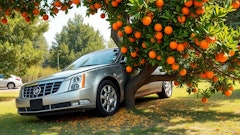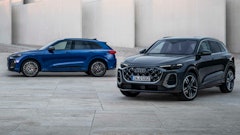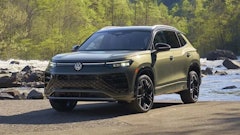
By Jeff Sanford
Toronto, Ontario — April 17, 2017 — Leading off this week’s Tuesday Ticker is an update on the continuing drama spinning out of PPG’s attempted acquisition of AkzoNobel. Plus we look into Axalta’s purchase of part of Valspar, BASF’s deal with a “nanopigment” company and much, much more!
– The big news in markets this week is the continuing showdown between AkzoNobel and PPG. PPG has submitted two unsolicited bids to AkzoNobel management, both of which were turned down.
One of AkzoNobel’s big shareholders is Elliot Advisors, an activist investor that pushes for changes at companies to generate increases in share price. The hedge fund called for the ouster of AkzoNobel’s Chairman, Antony Burgmans, who it is thought could have final say on the deal.
AkzoNobel is based in the Netherlands, and therefore is governed under unique provisions in Dutch laws that go back centuries. The laws allow a company to defend itself against hostile takeovers through a system of special controlling shares that have more voting weight than common shares. The votes of those shares are determined by the chairman of the holding company that controls AkzoNobel, in this case Burgmans.
Elliott Advisors, which has a 3 percent stake in AkzoNobel, called on the company to convene what is known as an extraordinary general meeting (EGM).
In a statement, Elliot said it controlled a “group of investors that meets the Dutch legal threshold of 10 percent support needed to call an extraordinary shareholders meeting to vote on a proposal to remove Chairman Antony Burgmans.” Such a meeting would take eight weeks to organize. The Elliott statement went on to say that, “We believe the boards are willfully ignoring the interests of stakeholders in this respect and that they are acting in a self-entrenching and obstructive manner.”
A statement from AkzoNobel says the company will work on it, “… within 14 days to the request to call an extraordinary general meeting (EGM), as required by Dutch law.”
The AkzoNobel press release went on to say that the company strongly supports Burgmans: “The view of the supervisory Board is that the removal of Mr. Burgmans would be irresponsible, disproportionate, damaging and not in the best interest of the Company, its shareholders and other stakeholders …Therefore the proposed agenda item to remove Mr. Burgmans will be rejected.”
The whole situation twisted up into an unexpected level of drama when AkzoNobel claimed that it had found out that Elliott Advisors had “met with” PPG execs. According to another press release from the company this week: “AkzoNobel became aware on April 11, 2017 that Elliott Advisors intended to privately share potentially price sensitive information with PPG about its decision to request an EGM. AkzoNobel has shared this information with the Dutch Authority for the Financial Markets (AFM) and calls on Elliott Advisors and PPG to clarify their relationship and the history of the communications between the two.”
It isn’t clear that the communication was in any way incorrect or against securities law. But it is an interesting twist. The communications refer to a couple of emails that were accidentally sent to AkzoNobel from PPG. According to the Financial Times story: “Akzo’s advisers shared documents with the Financial Times that showed Gordon Singer, the London-based son of Elliott’s founder, asking a colleague to notify PPG that it had submitted a request for a special shareholder meeting, which was not made public at the time. The Elliott employees had accidentally copied Lloyd Midwinter, director of investor relations at Akzo, in the email chain, the documents show and multiple people involved confirmed.”
– Axalta agreed this week to acquire Valspar’s North American Industrial Wood Coatings unit. The deal will see Axalta pay $420 million in cash for the unit. You may be wondering why anyone in the collision industry would possibly care, but it’s hoped that this sale will allow Sherwin-Williams to satisfy regulatory conditions and get the company’s acquisition of Valspar approved. Regulators have yet to weigh in and confirm if this is enough of a divestiture to satisfy anti-trust issues. Axalta’s Chief Executive Charles Shaver was quoted in a press release as calling the deal “an outstanding opportunity” that would “strengthen and further diversify our Performance Coatings segment.”
– Sherwin-Williams had its “buy” rating reiterated by Royal Bank of Canada in a report issued on Tuesday. RBC analysts have a $350.00 price target on the stock. That price suggests potential upside of 13 percent.
– BASF and Israel’s Landa Labs have formed a partnership that will see the paint maker bring Landa’s “nanopigment technology to the automotive coatings industry.” A report in the business trade press notes that, “Landa developed the technology for the printing industry. Now, BASF seeks to bring the process to auto coatings, where it says smaller pigment particles will disperse easily and create paints with higher intensity.” Definitely a story to watch.
– Boyd Group Income Fund had its target price lifted by Royal Bank of Canada from $88.00 to $89.00 in a report published on Friday. Royal Bank of Canada currently has a sector perform rating on the stock.
– AutoCanada garnered big headlines this week when it signed a deal to buy a Montreal-area Mercedes-Benz dealership, Mercedes-Benz Rive-Sud. The deal is a fantastic bit of news for AutoCanada and it seems to have reignited investor interest in the stock price after shares had dipped in value recently. There is, in this story, a suggestion of a turn in fortune. According to a report in the Globe and Mail, “Mercedes-Benz Canada Inc. had previously banned ownership of its dealerships by publicly traded companies and AutoCanada lost out on the bidding for a Mercedes-Benz store in Ontario last year.” Apparently that policy has been reversed. Now, AutoCanada, a publicly-traded company, will introduce the first luxury brand dealership into its portfolio. That’s going to be good for business. According to the Globe article, the deal for Mercedes-Benz Rive-Sud, “expands AutoCanada’s footprint among luxury auto makers, which are among the fastest-growing brands in the Canadian market and are expected to continue to grow.” Investors are already registering their approval. Shares in AutoCanada enjoyed a one-day spike of almost 8 percent on April 12.
Related Market Notes
– A couple of weeks ago it was reported in this space that Tesla had passed Ford in terms of total market capacity. That basically means the total market value of the shares is higher for Tesla than it is for Ford. Last week Tesla passed GM in terms of the same measure. Now it’s closing in on Mercedes-Benz.
This has many people scratching their heads. Mike Jackson, the CEO of AutoNation (America’s largest auto dealer chain) had this to say, “It’s either one of the great Ponzi schemes of all time or it’s all going to work out [for Tesla].” Jackson was speaking at a conference sponsored by the National Automobile Dealers Association and J.D. Power. He was quoted in a newspaper article. “It’s totally inexplicable, as far as its valuation.” According to the report, “Tesla delivered fewer than 80,000 vehicles last year and has only reported two profitable quarters in its short history. GM, on the other hand, sold more than 10 million vehicles and expects to earn more than $9 billion this year.”
On one hand, some investors think Tesla represents the future of the industry. The company is enjoying a certain brand prestige because of CEO Elon Musk’s other impressive ventures, such as Space X. On the other hand, the naysayers argue the company is over-leveraged and ripe for a collapse. The pessimists also argue the cult-life following of the brand is just that, a cult.
It should be pointed out that AutoNation has a very large interest in how this story turns out: “The Palo Alto, California-based company sells vehicles through its own stores and has battled in court with dealers who argue Tesla violates laws against direct sales by auto manufacturers,” according to the report. The Tesla model, which sells direct to owners, undermines the traditional auto dealership model.
As well, more electric vehicles are coming to market, potentially undermining Tesla’s first-mover advantage. In addition, GM will roll out the 2018 Cadillac CT6 this fall. The CT6 features Super Cruise, said to be the answer to Tesla’s Autopilot. The new CT6 will use LiDAR, just like potential autonomous vehicles will. Tesla’s don’t use LiDAR, but a more traditional suite of sensors and cameras. It will be fascinating to see who is right and to find out how this plays out.






















